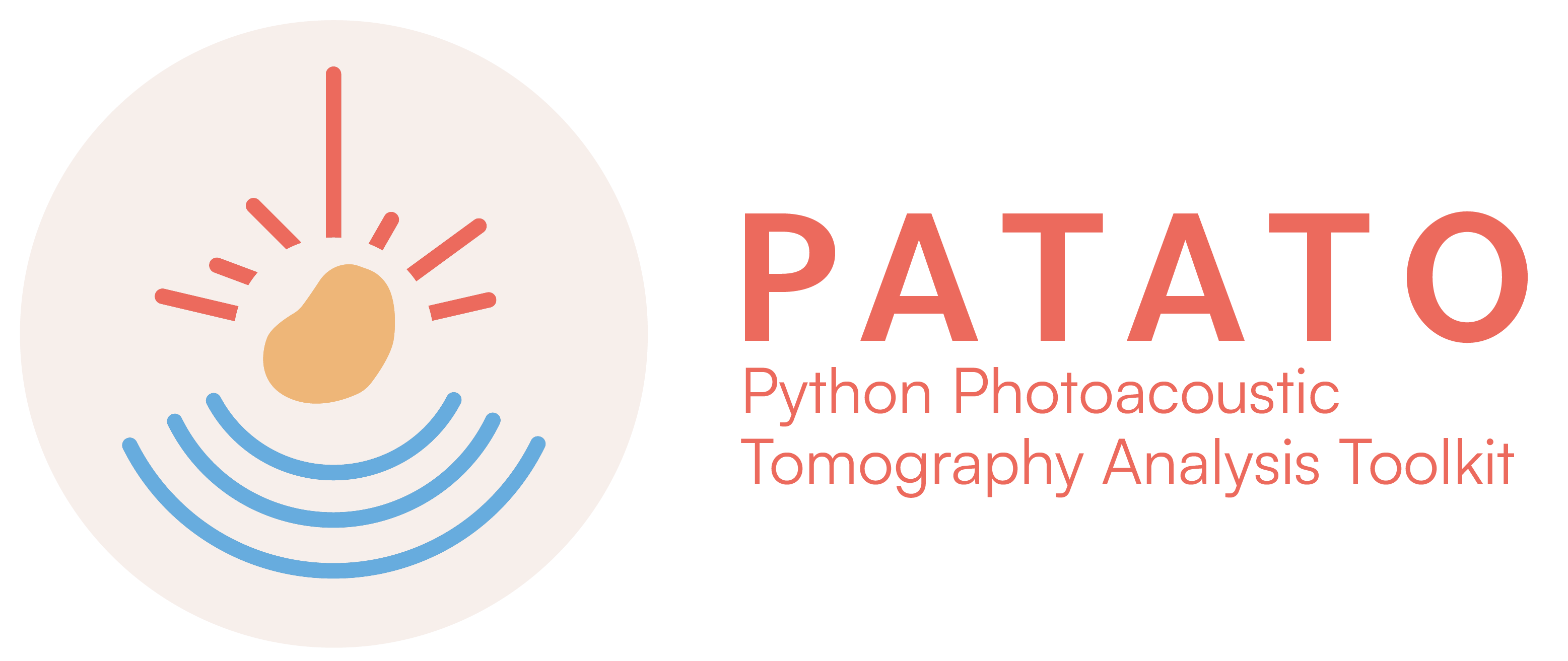PreProcessor#
- class patato.PreProcessor(time_factor: int = 3, detector_factor: int = 2, irf: bool = True, hilbert: bool = True, lp_filter: float | None = None, hp_filter: float | None = None, filter_window_size: int = 512, window: str = 'hann', absolute: str | None = None, universal_backprojection=False)#
Bases:
TimeSeriesProcessingAlgorithmPreprocesses MSOT time series data. Uses JAX in the background.
- __init__(time_factor: int = 3, detector_factor: int = 2, irf: bool = True, hilbert: bool = True, lp_filter: float | None = None, hp_filter: float | None = None, filter_window_size: int = 512, window: str = 'hann', absolute: str | None = None, universal_backprojection=False)[source]#
Methods
__init__([time_factor, detector_factor, ...])add_child(child)Get the name of the algorithm.
Return the name of the group in the HDF5 file
pre_compute_filter(n_samples, fs[, irf])Precompute the filter to be applied.
run(time_series[, pa_data, irf, detectors])Run the preprocessing step on a given time series and detectors.
- static get_algorithm_name() str | None[source]#
Get the name of the algorithm.
- Return type:
str or None
- static get_hdf5_group_name() str | None[source]#
Return the name of the group in the HDF5 file
- Return type:
str or None
- pre_compute_filter(n_samples: int, fs: float, irf: ndarray[Any, dtype[_ScalarType_co]] | None = None)[source]#
Precompute the filter to be applied.
- Parameters:
n_samples (int) –
fs (float) –
irf (Array) –
- run(time_series, pa_data=None, irf=None, detectors=None, **kwargs) Tuple[PATimeSeries, Dict, list | None][source]#
Run the preprocessing step on a given time series and detectors. This allows batch processing, e.g. if the data doesn’t fit into memory.
- Parameters:
time_series –
pa_data –
irf –
detectors –
kwargs –
- Return type:
tuple of PATimeSeries, dict, list
